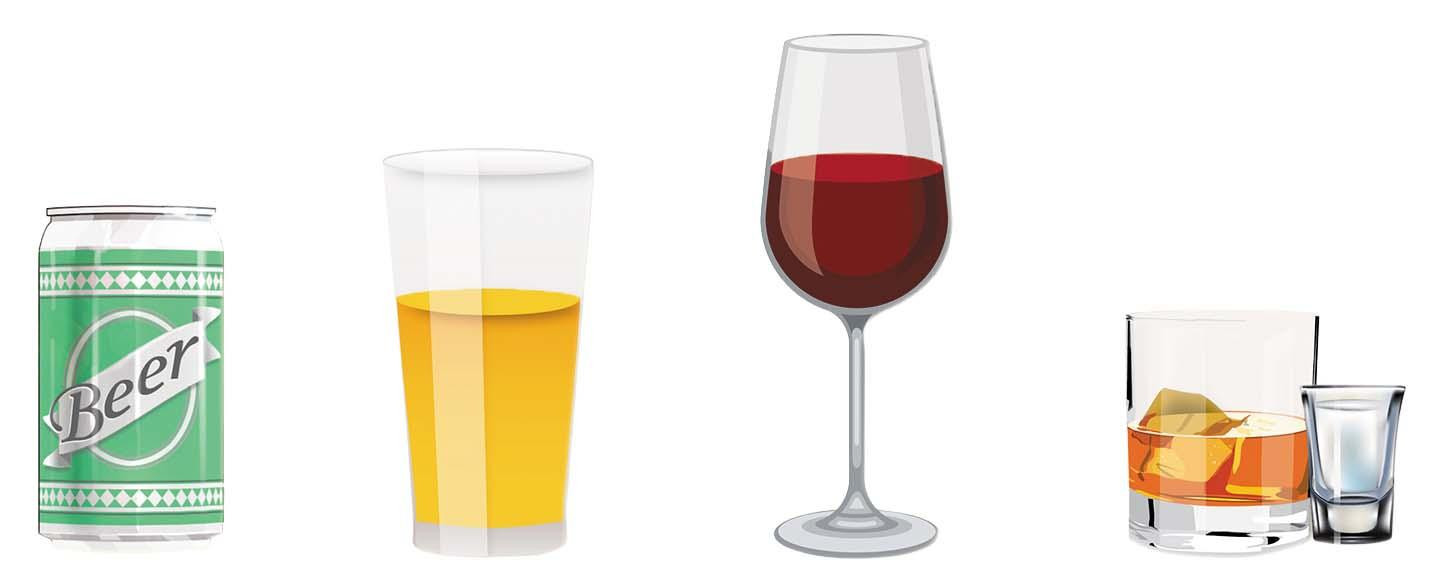Alcohol and heart health: A complex relationship
Heavy alcohol use is clearly harmful. But the cardiovascular effects of light to moderate drinking remain uncertain.
- Reviewed by Christopher P. Cannon, MD, Editor in Chief, Harvard Heart Letter; Editorial Advisory Board Member, Harvard Health Publishing

If it seems like the advice about alcohol and heart health has been inconsistent and even perplexing at times, you’re not wrong. But there are reasons for the mixed messaging. The association between alcohol and cardiovascular disease is both complex and controversial, according to a scientific statement from the American Heart Association (AHA), published in the July 8, 2025, issue of Circulation.
Still, one key point is pretty straightforward. “If you stay within the current limits for moderate drinking, there’s no evidence that amount of alcohol will raise your risk for the most common forms of heart disease,” says Harvard Medical School professor Dr. Ken Mukamal, one of the authors of the statement. Whether light to moderate drinking can lower your risk is a different question and one that’s not possible to answer with the current level of evidence, he adds.
The AHA statement summarizes the evidence about alcohol use and coronary artery disease (the main culprit in most heart attacks), stroke, and heart failure. For atrial fibrillation, it notes that the risk from even modest amounts of alcohol is uncertain but potentially worrisome. The review also explores how alcohol can affect blood pressure, diabetes, and blood clotting.
Official advice and recommendations
The 2020–2025 Dietary Guidelines for Americans say that people who choose to drink should limit themselves to moderate amounts, defined as no more than two drinks per day for men and no more than one drink per day for women (see “What counts as one drink?”). They also say that drinking less alcohol is better for health than drinking more, and that people who do not drink should not start drinking for any reason. Both the CDC and the National Institute on Alcohol Abuse and Alcoholism concur with those recommendations. There’s clear, consistent evidence that heavier drinking — an average of three or more drinks per day — is linked to worse outcomes for every type of heart disease. If you need help keeping your drinking habits within safe limits, see “5 steps toward drinking less.”
Cardiac conditions: The evidence
People who routinely have a daily drink or two appear to have a lower risk of coronary artery disease, stroke, and heart failure compared to nondrinkers and heavy drinkers. But these findings are from observational studies, which cannot prove cause and effect, since the studies can’t fully account for potential confounding factors. For example, light-to-moderate drinkers tend to be educated and relatively well-off, so they’re more likely to have heart-healthy habits that may explain their lower risk. In addition, nondrinkers may have underlying health problems that led them to stop drinking, which can also sway the results. What’s more, these studies rely on people reporting how much they drink, which appears to be less accurate in people who drink more than moderate amounts.
In recent years, researchers have relied on genetic variants associated with alcohol consumption in an attempt to mimic a randomized controlled trial. (Such trials, which provide a gold-standard level of evidence, aren’t usually feasible with potentially harmful substances like alcohol.) These so-called trial emulations suggest that any amount of alcohol — even just a single drink per day — might raise rather than lower heart disease risk. But as the AHA statement explains, these types of studies have different limitations, mostly related to uncertainties about the strength and reliability of the genetic linkages, Dr. Mukamal explains.
5 steps toward drinking lessIf you need to cut back on your drinking, these tips may help: 1. Keep a drinking diary. Write down what and how much you drink for a few weeks to get a better sense of how much you imbibe. 2. Don’t keep any alcohol (or keep just limited amounts) in your house. Doing so can limit your drinking to social occasions or restaurants and may discourage you from drinking simply out of habit. 3. Dilute and sip slowly. Dilute your wine or cocktail with sparkling water and ice. Take your time drinking it. 4. Drink only with meals. Never drink on an empty stomach. 5. Establish alcohol-free days. Choose several days each week to steer clear of all alcohol. |
Atrial fibrillation alert
Many studies show a connection between alcohol use and the heart rhythm disorder known as atrial fibrillation (afib). Heavy or binge drinking can trigger an episode of afib — a phenomenon known as “holiday heart.” It’s not clear whether a single daily drink affects afib. But one study of drinkers with afib found that those randomly assigned to abstain had far fewer episodes than those who continued drinking (see “Can lifestyle changes affect atrial fibrillation?” in the April 2020 Heart Letter). Another in which people with afib wore sensors that continuously monitored their blood alcohol level found higher odds of an episode within hours of drinking. “If you have afib, there’s a good chance that alcohol will make it worse,” says Dr. Mukamal.
What counts as one drink?
A standard drink contains about 0.6 fluid ounces (14 grams) of pure alcohol. The drinks shown above are different sizes, but all contain roughly the same amount of alcohol, and each counts as a single drink. To get a better idea of the alcohol content in mixed drinks, use this calculator from the National Institutes of Health. National Institute on Alcohol Abuse and Alcoholism/NIH |
How alcohol affects common risk factors
Alcohol can also affect conditions that go hand in hand with heart disease—namely, high blood pressure, diabetes, and blood clots. Observational (and therefore less reliable) evidence suggests that on average, the more people drink, the higher their systolic blood pressure (the first number in a reading). The strongest evidence suggests that drinking amounts above the moderate limit — but not necessarily within the limit — is linked to higher blood pressure.
If you have diabetes, be aware that drinking alcohol with a meal tends to lower blood sugar levels. “Whether that’s good or bad is highly individual and depends on many factors, including what medications you’re taking,” says Dr. Mukamal.
Finally, alcohol can accentuate the effects of antiplatelet medications such as aspirin and clopidogrel (Plavix), potentially increasing a person’s risk for serious bleeding (see “What’s new in blood clot prevention?” in the August 2025 Heart Letter.)
Image: © Peter Dazeley/Getty Images
About the Author

Julie Corliss, Executive Editor, Harvard Heart Letter
About the Reviewer

Christopher P. Cannon, MD, Editor in Chief, Harvard Heart Letter; Editorial Advisory Board Member, Harvard Health Publishing
Disclaimer:
As a service to our readers, Harvard Health Publishing provides access to our library of archived content. Please note the date of last review or update on all articles.
No content on this site, regardless of date, should ever be used as a substitute for direct medical advice from your doctor or other qualified clinician.

















